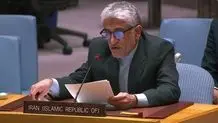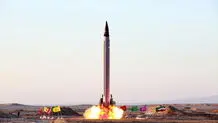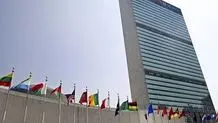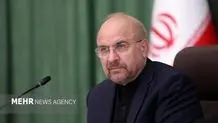Iran’s UN mission:
All sanctions on Iran as “baseless, unjust, unlawful”
Iran’s Permanent mission to the United Nations says all sanctions and restrictive measures applied against Iran, including those imposed under the pretext of its nuclear program, have been baseless, unjust, and unlawful.
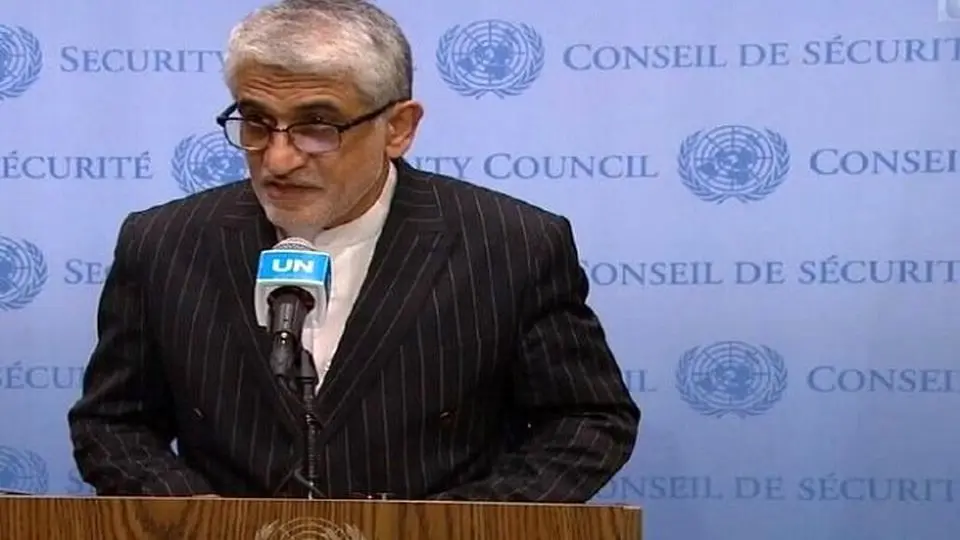
MEHR: Iran’s Permanent mission to the United Nations says all sanctions and restrictive measures applied against Iran, including those imposed under the pretext of its nuclear program, have been baseless, unjust, and unlawful.
The statement was issued on Wednesday following the termination of certain provisions of the UNSC 2231 Resolution.
The full text of the statement follows:
1. The Islamic Republic of Iran recalls its position as reflected in document S/2015/550 dated 20 July 2015 and continues to insist that all sanctions and restrictive measures introduced and applied against Iran, including those imposed under the pretext of its nuclear program, have been baseless, unjust and unlawful.
2. In accordance with paragraphs 3, 4 and 6 of Annex B to the UNSCR 2231 (2015), as of 18 October 2023, all restrictions unjustly imposed on the ballistic missile-related transfers and activities to/from the Islamic Republic of Iran, including the asset freeze and financial services to individuals and entities on the 2231 list, terminate automatically.
3. Based on the provisions of the UNSCR 2231 (2015), as of 18 October 2023, the following take effect:
A. In accordance with paragraph 3 of Annex B, Iran is no longer ‘called upon’ by the Security Council ‘not to undertake any activity related to ballistic missiles designed to be capable of delivering nuclear weapons, including launches using such ballistic missile technology’, and the provisions of this paragraph terminate, notwithstanding the fact that Iran’s ballistic missiles program has never been inconsistent with the provisions of this paragraph.
B. In accordance with paragraph 4 of Annex B, the provisions related to the following activities terminate and all States may participate in those areas without the need for any approval by the United Nations Security Council:
I. The supply, sale, or transfer directly or indirectly from their territories, or by their nationals or using their flag vessels or aircraft to or from Iran, or for the use in or benefit of Iran, and whether or not originating in their territories:
i. of all items, materials, equipment, goods, and technology set out in S/2015/546,
ii. of any items, materials, equipment, goods, and technology that the State determines could contribute to the development of nuclear weapon delivery system,
II. The provision to Iran of any technology or technical assistance or training, financial assistance, investment, brokering or other services, and the transfer of financial resources or services, or Iran’s acquisition of an interest in any commercial activity in another State, related to the supply, sale, transfer, manufacture or use of the items, materials, equipment, goods, and technology described in above subparagraph (I) or related to the activities described in paragraph 3 of Annex B.
C. In accordance with paragraph 6(c), the previous requirement for States to freeze the funds, other financial assets, and economic resources on their territories that are owned or controlled by the individuals and entities on the 2231 list terminates. Additionally, in accordance with paragraph 6(d), the previous requirement for States to ensure that funds, financial assets, or economic resources are prevented from being made available by their nationals or by any individuals and entities within their territories, to or for the benefit of individuals and entities on the 2231 list terminates. Therefore, individuals and entities on the 2231 list, will no longer be subject to any restrictions, and as such, the 2231 list no longer exists (and will be removed from the United Nations website).
4. The UNSCR 2231 (2015) which ‘endorse[d] the JCPOA and urge[d] its full implementation on the timetable established in the JCPOA’, based on article 25 of the United Nations Charter, has underscored that Member States are under obligation to accept and carry out the Security Council’s decisions. Therefore, all U.N. Member States are under obligation to give due regard to the termination of the restrictions foreseen in the UNSCR 2231(2015) and the JCPOA timetable. Consequently, any restriction imposed on the basis of the UNSCR 2231(2015) at the national or regional level shall terminate, as of 18 October 2023, in line with the resolution.
5. Maintaining or imposing any unilateral/autonomous sanctions/restrictive measures on Iran’s engagements and cooperation with other States with respect to activities previously restricted by the UNSCR (and terminated on 18 October) or on the individuals and entities on the previously existing 2231 list would clearly violate paragraphs 1 and 2 of the UNSCR 2231 (2015) and the timetable foreseen in its Annex B and Annex V of the JCPOA. The Islamic Republic of Iran reserves its right to take appropriate response to any such measures and to secure its national interests in this respect.
6. The UNSCR 2231 (2015) has emphasized that ‘JCPOA is conducive to promoting and facilitating the development of normal economic and trade contacts and cooperation with Iran’. The stated goal of Annex B of the resolution was also ‘creating an atmosphere conducive to the full implementation of the JCPOA’. Hence, any measure that may negatively affect the normalization of trade and economic relations with Iran violates obligations arising from the UNSCR 2231 (2015).
7. It should be recalled that on 18 October 2020, based on paragraphs 5 and 6 (b) and (e) of Annex B of the UNSCR 2231 (2015), all restrictions on arms-related transfers of the Islamic Republic of Iran and entry into or transit through the territories of all Member States of the individuals contained on the 2231 list had already terminated, as reflected in Secretary General’s Report S/2020/ 1177 dated 7 December 2020.
آخرین اخبار Iran را از طریق این لینک پیگیری کنید.

